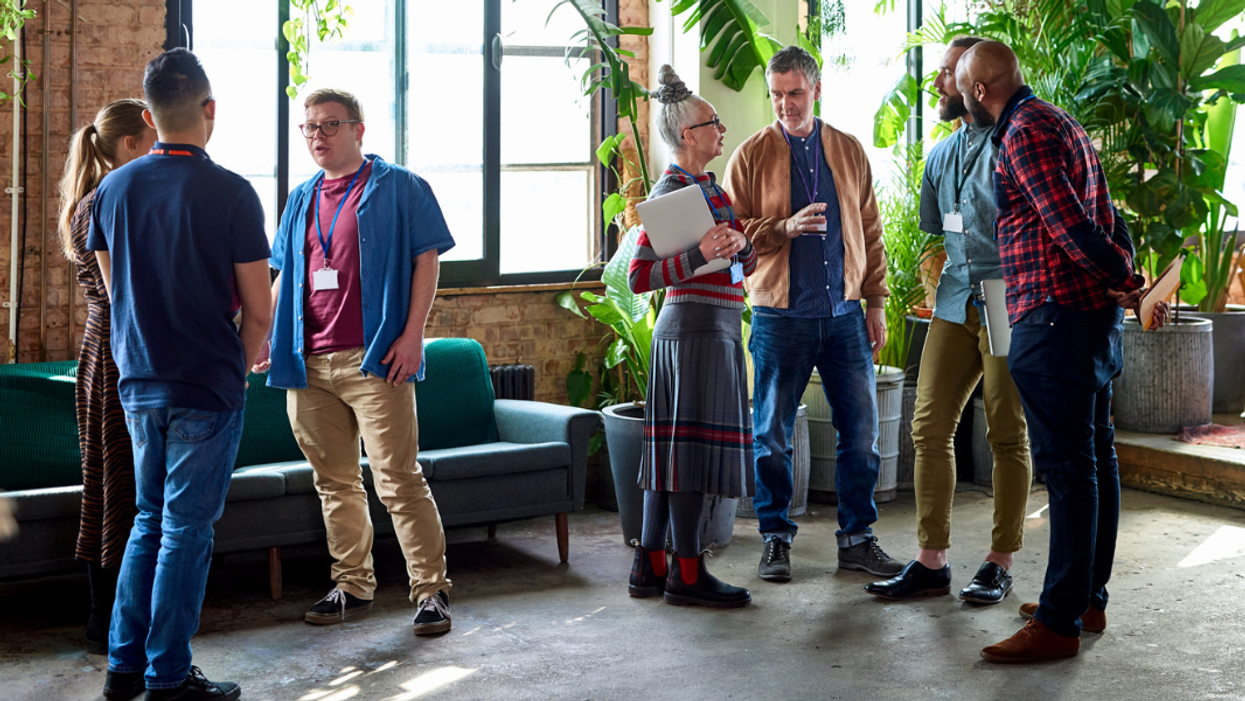Dairanys Grullon-Virgil is the Associate Director of Alumni and Youth Voice at Generation Citizen. She leads research and program development focused on equity, youth civic leadership, and connecting rising leaders to advocacy opportunities. Dairanys, originally from the Dominican Republic, has a youth leadership development, public advocacy, and community organizing background.
Throughout different generations in the history of the United States, age-diverse stakeholders have come together to address public challenges in our society - ranging from the full enjoyment of civil rights and access to water in indigenous communities, to issues of gun violence and mental health. Today's young people are both heirs to and innovators within that tradition. They are bringing together their peers, from across differing backgrounds and viewpoints, to address the issues that confront them all.
According to CIRCLE, one of the nation’s leading researchers on youth civic engagement, 27% of young people between the ages of 18-29 voted during last year’s midterm election, marking the second highest level of voter turnout in nearly 30 years. Concurrently, voters in Florida elected Maxwell Frost, the first member of Congress from Generation Z, to represent their interests in Washington D.C. Defying misperceptions of political apathy and civic distrust, young people have demonstrated their care about our public life and are raising their voices to champion a better future for themselves - and for the entire country.
One barrier to age-diverse coalitions is the sentiment that young people have to fight for a seat at the table instead of being included with decision-making power. In a recent report examining cross-generational civic participation, Generation Citizen and partnering organizations found that negative stereotypes can arise when older generations devalue the contributions of young people. As a further example of this, our informal conversations often contain phrases like: “young people are the future,” or “the elders will show us the way”, but how exactly does cross-generational collaboration ensure young people have the tools they need to be successful in a pluralistic society?
Intentional investment and design practices that emphasize the power of intergenerational partnership can help young people overcome their disenfranchisement in a system that questions their civic engagement, based on characteristics like socioeconomic status, race, gender, and level education attained. As polarization and misinformation spread across our democratic practices, youth are often left alone to navigate the electoral process and identify opportunities for civic engagement.
At Generation Citizen, our Action Civics programming provides hands-on, relevant civic education to young people across the country. We connect civic knowledge and disposition to civic participation. We adopt this instructional approach because when young people understand the intricacies of how democracy works, our data indicates they develop a sense of stakeholdership in democracy and become more academically engaged. Further, our recent co-authored publication, entitled Beyond Passing the Torch: How Age Diversity Can Strengthen Democracy, identifies deep intergenerational collaboration as a vital element of realizing an inclusive, informed, and equitable democracy.
Additionally, we found there to be a power differential between young people and their older counterparts when they engage in civic spaces, such as city council hearings, coalition and community board meetings, electoral campaign opportunities, and the like. As a result, young people can experience barriers to their participation and become less engaged and less likely to engage in civic opportunities. Overcoming those roadblocks to civic participation takes cultivating an asset-based disposition of curiosity and collaboration, rather than reverting to shorthand descriptions and generalizations about the civic involvement of any one generation.
Cross-generational misconceptions about both older and younger stakeholders — sometimes referred to as ageism and adultism — have also played a role in deteriorating the perception of youth agency in our democracy. Ageism refers to the stereotypes, prejudice, and discrimination towards others or oneself based on age. Ageism is often, though not exclusively, evident in misperceptions of how older adults participate in political life. Adultism, by contrast, is the act of prejudice or discrimination against young people as a group. When either of the two foregoing dynamics is not sufficiently considered, young people can be superficially engaged in campaigns, events, and activities without fully recognizing their needs, identities, or perspectives.
When cross-generational partnership is at its best, young people and adults co-create spaces where rising leaders feel welcome and needed not only for their opinions but also for their reflection on their lived experiences, their willingness to serve, and their courage to help make tough leadership decisions. We’ve found that this kind of partnership can — and does — happen in venues as varied as grassroots coalitions, community boards, and local and state government commissions.
To effectively and authentically move beyond passing the torch, young people must feel confident in their ability to participate in democratic practices and in their self-perception as existing, capable leaders of democracy. Young people are not trailblazers and changemakers in a distant, not yet arrived future—they are always, already citizens and community members with full standing in our current moment. In order to realize a society where youth civic leadership is included within our political institutions, our opportunity and charge is to build an ecosystem of cross-generational practice that prioritizes a reciprocal, continual transfer of skills, knowledge, and trust from older generations to younger ones, and inversely from younger generations to their older peers. It is a difficult, but doable task, and one that can help all generations do their part to light the path towards a more equitable, participatory democracy.



















